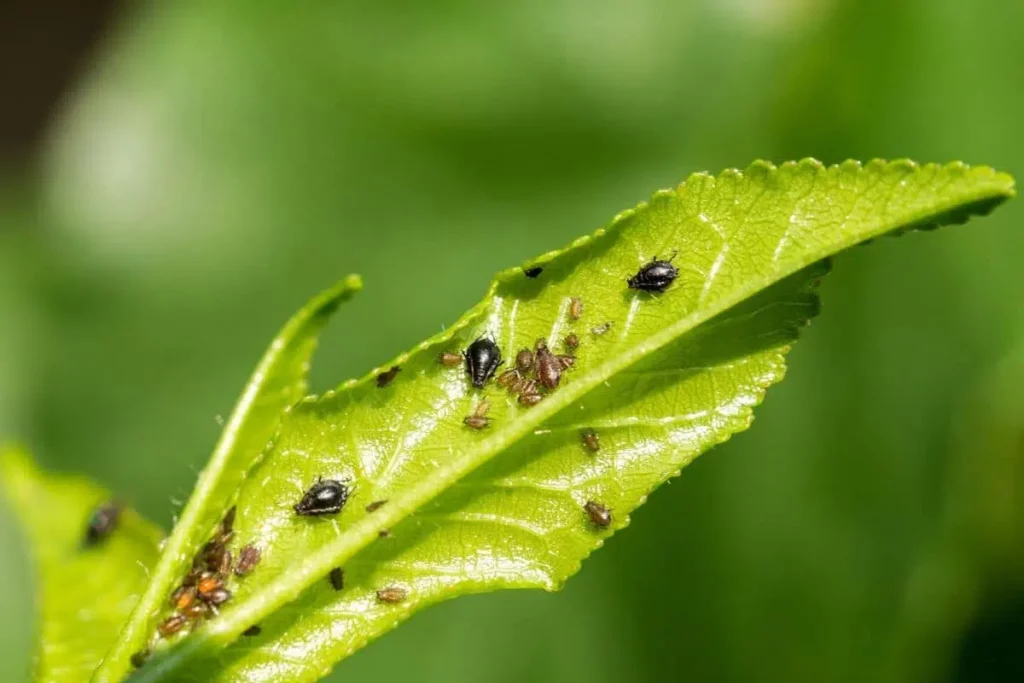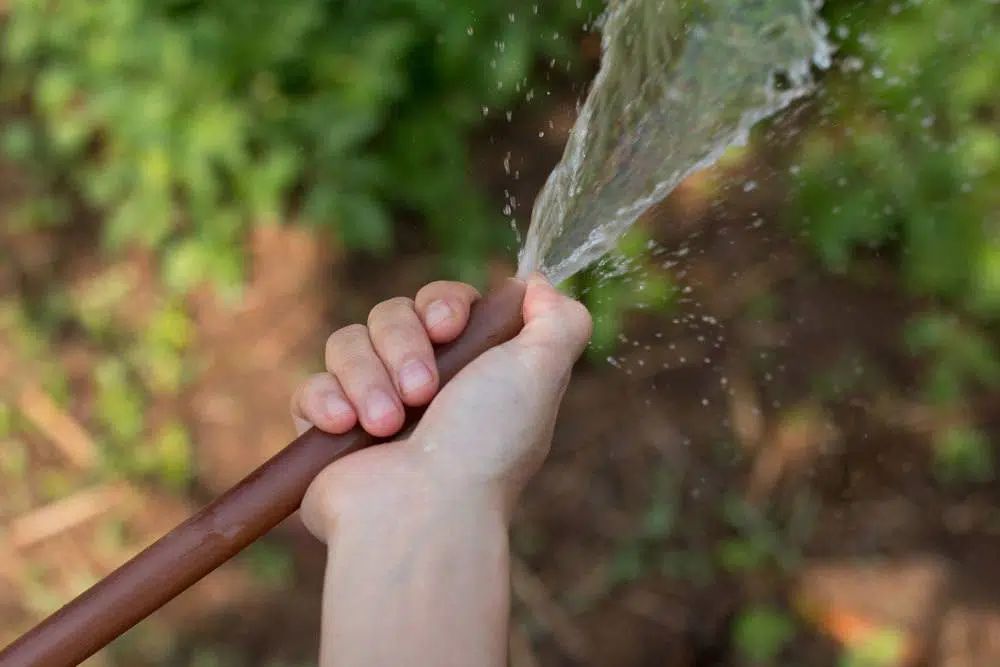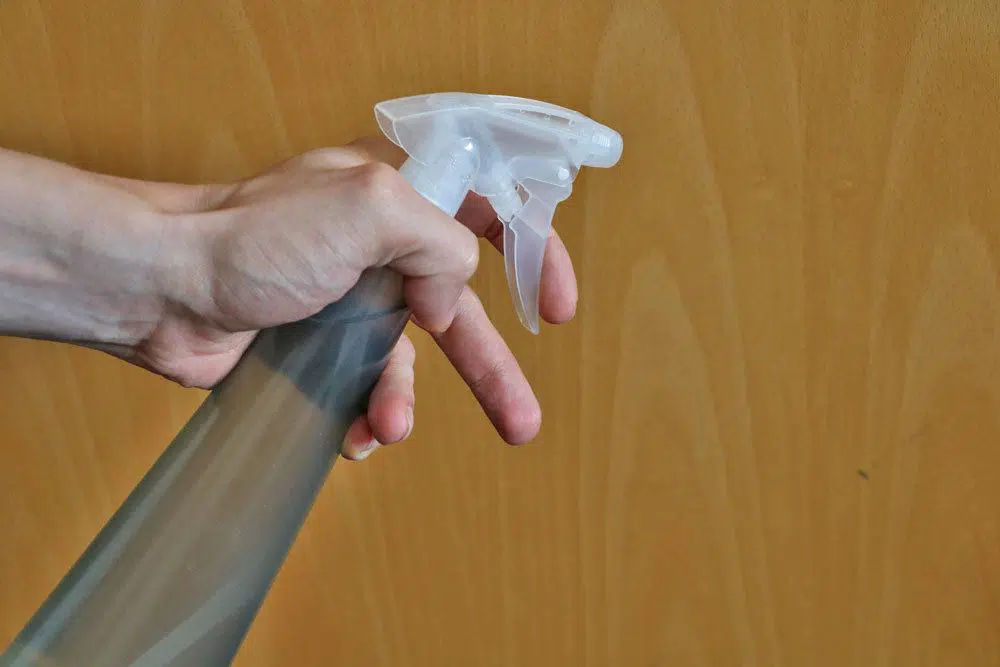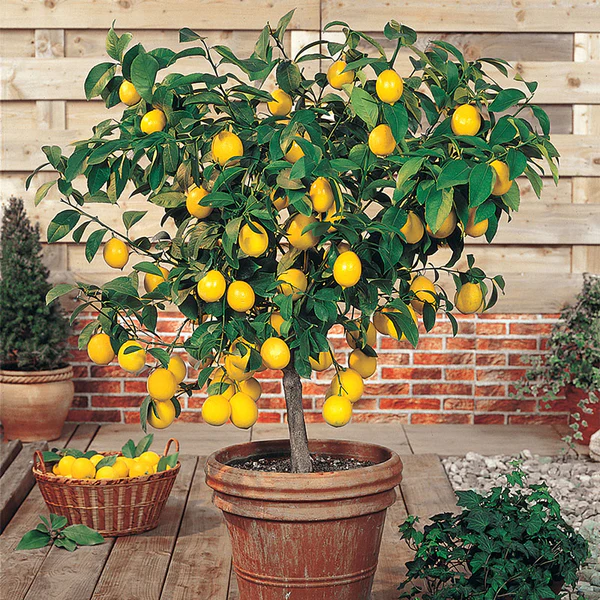In this country, too, lemon trees are welcome guests on the balcony and terrace. They spread a pleasant atmosphere. In winter, however, they need a suitable winter quarters. Sometimes they can get sticky leaves here.
- sticky drops on the lemon tree often during the winter break
- mostly appearing on the underside of leaves, shoots and branches
- the culprits are scale- sometimes also mealybugs and mealybugs
- in case of a massive infestation the plant is permanently damaged
- Control mechanically or with soap suds and oil
Contents
- 1 Various causes
- 2 The culprit: scale insect
- 3 Recognizing scale insects
- 4 Measures against aphids
- 5 Mechanical control
- 6 Soapy water
- 7 Rapeseed oil
- 8 Frequently asked questions
- 9 Is it possible to prevent a scale insect infestation?
- 10 Does overwintering have an effect on scale infestation?
- 11 Do chemical agents help against scale insects?
- 12 Author
Various causes
In summer, the lemon tree feels very comfortable outdoors. However, it is not hardy in our latitudes, and therefore requires a frost-free winter quarters. Sometimes it can happen very quickly that sticky leaves appear during winter dormancy. There is not only one cause for this, but there are several possibilities such as:
- too warm and dark location
- too dry air
- lack or excess of nutrients
- wrong watering
- no air circulation
Most often lemon tree “sticky” during the winter period, however, sticky leaves can also occur during the growing season, if the location was chosen incorrectly.
The culprit: scale insect
As a rule, sticky leaves are caused mainly by scale insects. These suck the plant sap and then excrete sugary droppings called honeydew. Since this contains a high sugar content, sticky leaves result. Not only are these sticky, but the immediate surroundings are sticky as well. Scale insects are able to fling their excrement up to 15 centimeters. Thus, the floor may be sticky.
Recognizing scale insects
Scale insects are relatively small, but still visible to the naked eye. They are usually found along the conductive pathways on the underside of leaves, but also on smaller shoots and branches. Here the bark is still relatively soft and the plant sap can be easily sucked out. Special characteristics are:
- possess oval to roundish brown-black shields.
- size about 2 x 3 mm
- under shield deposit of eggs by females
- females often immobile
- hatching of white larvae from July
- larvae are mobile
- like to attack leaves and shoots of neighboring plants
- only females suck plant sap
- release of poisonous saliva
- plant tissue is destroyed
- male specimens are harmless
- do not have mouthparts
- are often winged

Briefly, a few remarks about the mealybugs and mealybugs. They also damage the lemon tree by sucking the sap from the plant. They are mainly located in the leaf axils and bifurcations of twigs and branches, sometimes on the underside of the leaf. They are 3 to 4 millimeters in size and white to pink in color. Furthermore, the red spider mite can harm plants cultivated especially in the room or overwintered too warm and dark. They are just under 0.5 to 1.0 millimeters in size and sit along the conductive pathways on the underside of the leaves, where they also suck out the plant sap. Fine, white webs in the leaf axils, on the undersides of leaves and shoot tips are typical. Control is carried out in exactly the same way as for aphids.
Tip: If the soil sticks in the immediate vicinity of the lemon tree and ants appear more frequently, these are the first signs of an infestation of scale insects, especially outdoors. They love the excretions of aphids and provide and protect them.
Measures against aphids
When controlling aphids, especially scale insects, chemical agents should be avoided if possible. These can sometimes damage the lemon tree itself and are also dangerous to the environment. There are different measures to get rid of scale insects from the lemon tree.
Mechanical control
This is probably the easiest method to fight the cause. All that is needed is a water hose with a nozzle and a toothbrush. Proceed as follows:
- Lay the plant on its side
- Aphids must not get into planting soil
- alternatively cover pot and soil with plastic bag
- rinse the plant with a sharp jet of water
- either use a nozzle or
- squeeze hose at the end
- then use a toothbrush
- carefully scrub all leaves and twigs with it
- always move the brush at right angles to the branch to be treated
- then shower the lemon tree again
- constant control in the following days
- repeat the procedure if necessary

Note: Smaller lemon trees can simply be submerged overhead in a bucket filled with lukewarm water for a few hours.
Soapy water
Helping to control aphids and sticky leaves can also be the use of soapy water. This requires:
- 1 teaspoon of liquid or grated curd soap.
- 1 liter of lukewarm water
- a spray bottle
Everything must be mixed well. It is important that the soap has dissolved properly. Then the treatment can be carried out:
- Lay down the plant best
- then spray well with the lye
- should be left for a few hours
- preferably overnight
- on the following day thoroughly rinse with clean water
- Repeat the procedure after a few days
- thereby destruction of all eggs and hatched larvae
However, the use of soapy water may become somewhat of a concern if fruit already present is intended for consumption.

Tip: In the case of single animals, a cotton ball soaked in methylated spirit can help. The lice are simply coated with it.
Rapeseed oil
A good help in repelling lice can also be rapeseed oil. The respiratory tract is also clogged like when using soapy water and the animals suffocate. In addition, the leaves become slippery and the aphids no longer have a foothold. Before treatment, however, a larger pile of paper should be laid out to avoid soiling the floor. Then you can start:
- Prepare a mixture of 30% canola oil and 70% water.
- Spray the plant
- leave for at least 3 hours
- then rinse with clean water
- repeat treatment if necessary
Note: Disadvantage of the treatment is remaining oily residues. However, it gives the leaves a nice shine.
Frequently asked questions
Is it possible to prevent a scale insect infestation?
Prevention is always better than cure. The location must be bright, sunny and protected from the wind. A humus-rich, slightly acidic, permeable soil such as special citrus soil is good. Care also plays a major role. Watering is rare, but penetrating, on hot days daily. The top layer of soil must be dry, lime-free water is used. Fertilizing is necessary every 14 days in spring and weekly from June to September. Also, frequent spraying of the plant is helpful.
Does overwintering have an effect on scale infestation?
Proper overwintering can prevent infestation. Temperatures between 3 and 13 °C and not too bright are ideal. The colder the lemon tree is, the darker it must be. The root ball must never dry out completely. At temperatures above 15 °C, spraying with lukewarm water is helpful.
Do chemical agents help against scale insects?
In case of a very heavy infestation and if all other means do not help anymore, it may be possible to use systemically acting agents. These are absorbed by the root and distributed throughout the plant by the plant juices.


